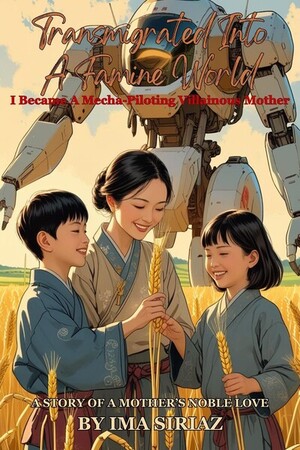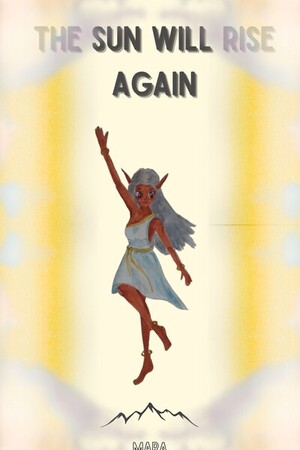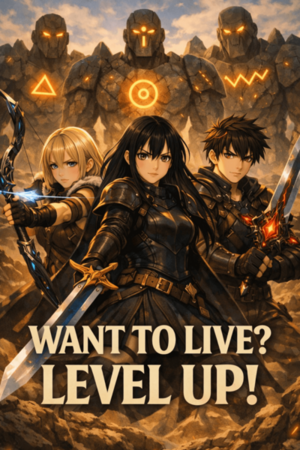Chapter 27:
Chapter 27: The Day After
Transmigrated Into A Famine World, I Became A Mecha-piloting Villainous Mother
With the conclusion of the battle, the village again fell into a lazy atmosphere. The villagers went back to the fields, chatting happily and preparing it for planting. The pressure was off now, the beast was dead and their losses were minimal.
The village was already flattened and the fields were already harvested. So the only losses that they had suffered were the few who were injured in the battle. All things considered, it was a landslide victory for the village.
Inside the former chief’s mansion, four beds held those injured from the battle.
“Oh my boy, how could you be the one injured? If I had known, I wouldn’t have bothered to go to the fort!” Old Hunter Gen cried next to his adopted son.
Old Man Jine patted Hunter Gen on the back, tell him, “If you didn’t go, we wouldn’t have Captain Kael coming here to help. Aina did great, but even with all our efforts, we still couldn’t finish the beast.”
“If Captain Kael didn’t come, we would’ve all been dead.”
“Yeah, when Rinia’s strider fell, I thought it was the end.”
“Honestly, I expected Rinia’s strider to stand back up. I mean did you see how she just beat the monster to the ground? I’ve never seen someone fight like that!”
“What do you mean you’ve never seen anyone fight like that? Don’t you remember how Rinia beat up Aunt Fum’s husband four years ago? It was exactly like that!”
“Seriously? Man, I missed a lot while I was working as caravan guard.”
“Aunt Fum’s husband, was it the gambler?”
“That’s right, he tried to sell Rinia’s daughter to pay off his debts.”
“Whoa! Selling a kid to pay off his debt? That was next level crook. She was… what… four years old?”
“Three. And small for her size.”
“Well I’m happy that he already left. I can’t imagine having that man in the village as my daughter grows up.”
“Let’s hope he died in a ditch somewhere.”
On the other side of the hall, Rhielle sat next to Aina. She wiped her mother-in-law’s forehead with a damp cloth gently, as if rubbing a fragile treasure.
There was a time when Rhielle utterly hated her mother-in-law. She had prayed to her ancestors, wishing for her mother-in-law to die so that she wouldn’t be beaten again. Yet when her mother-in-law actually committed suicide, she was shocked and sad. She had prayed again, asking for her previous wish to be taken back.
Over the years, she had been on the receiving end of the whip so many times, she couldn’t be bothered to count. And yet, it was never without a reason. Thinking back, it was always something related to the family. She would be beaten for overcooking the meals, for breaking the plates and for harvesting the grain wrong.
And yet after every beating, her mother-in-law would always point out her mistakes and teach her how to do it properly. And then the family would be peaceful, until the next mistake. It was the same with her brothers-in-law and sister-in-laws too. She beat them too, but there was always a reason.
Thinking back, was it all just her mother-in-law’s way of teaching them? But why so vicious? Couldn’t she just tell them gently?
Rhielle simply couldn’t understand. And when her mother-in-law came back from the dead, she was even harder to understand. All the previous viciousness was gone, replaced with a woman who was gentler but acted more like a fool.
Rhielle smacked the side of her head. She berated herself for calling her mother-in-law a fool. But honestly, that was her impression of her mother-in-law after her revival. The things her mother-in-law used to know, she didn’t know. Her mother-in-law used to be a good cook, according to her husband, but this mother-in-law didn’t know how to cook at all!
She couldn’t even start a stove properly.
“Rhielle, go have your breakfast, I’ll take care of mother,” Irek said as he sat down next to the bed.
“Understood, husband. Please call me if there’s anything you need,” Rhielle said as she stood up.
“Ah, no need to rush.”
When Rhielle finally left, he took the damp cloth from the cup and gently began wiping his mother’s exposed left arm. His hand paused when his fingers brushed against an old scar, the skin puckered and uneven. He winced, as though touching it had transferred the pain into him. This scar wasn’t like the others. This one he remembered. This one was his fault
Years ago, there was a wealthy noble family in the village. They were kin to the former village chief, and arrogant enough to believe the world itself bowed to them. They strutted about as though their every word was law. People despised them in silence, but not even the chief dared to resist. They weren’t mere landholders. They were holdlords, true nobility. A whim from them could end a life, and the villagers knew it. All they could do was keep their heads down, avert their eyes, and pray not to be noticed
Unfortunately, not even the village chief could do anything.
He hadn’t understood, not then. He was only eight years old, just the same age Tallo was now. His parents had told him again and again not to wander near the noble family’s estate at the edge of the village. But the river there ran deep and glittering, alive with fat fish. It was nothing like the shallow stream trickling through the village. To a hungry child, temptation was stronger than fear. Not that he knew of fear back then.
One day, basket brimming with his proud catch, he made his way home. That was when the noble’s son saw him. The boy, draped in fine clothes that had never known dirt, demanded every fish in his basket. But the child he had been was stubborn. He shook his head. The fish were for his family and only his family. He had caught them, and only his family would eat them. Without another word, he turned his back and walked home, never realizing the storm that would follow
That very evening, the boy arrived at their home, dragging his mother along with him. They stood at the doorway, wrinkling their noses at the stench of smoke and sweat, sneering at the dirt walls as if filth itself clung to the family inside. The insults came sharp and cruel, and he being hot-headed, foolish boy back then, struck back with his tiny fists. His mother was at the hearth, cooking the fish he had caught, while his father was away serving corvée labor.
What happened next burned into his soul, a sin he could never wash away. A memory he would never forget.
The boy’s mother, face twisted with disdain, struck out with a barbed whip. He remembered the whistling sound it made as it sliced through the air. He remembered freezing in terror. And then he was enveloped in warmth. His mother’s arms wrapped around him, holding him tightly, shielding him with her own body.
Again and again the whip tore into her flesh, each lash spraying blood across the dirt floor, and still she never let go. She whispered for him not to be afraid, not once loosening her embrace. By the time the village chief arrived, threatening to report the attack to the justicar, it was too late. His mother laid crumpled and broken, her body covered in blood.
The village doctor came soon after. He had taken one look, shaken his head, and declared there was nothing to be done. “She is gone,” the man had said. But he refused to hear it. He clutched her still form through the night, tears streaming endlessly, rocking his little brother Varn, only three years old then in his arms. Because of him, his mother had bled. Because of him, she had died.
When the villagers gathered the next morning to carry her away for burial, he had screamed at them to leave, hurling stones, scratching, biting. He would not let them take her. She was his mother. She could not be gone. He refused to let her go.
That night, his cries turned to prayers. With a voice hoarse from sobbing, he begged the ancestors to give her back. He prayed through dawn and dusk, his lips swore desperate oaths. He promised that no matter what, he would never disobey his mother again. He vowed that he would always care for her, always protect her, and never leave her side. He swore that even when he grew up and took a wife, his mother would remain first in his heart. He swore that she would always be above his wife, above his children, above all others.
And somehow, miraculously, the ancestors answered.
By morning, she stirred. Breath returned to her rosy lips. Color returned to her cheeks. The blood was gone, her skin whole again as though the lashing had neer happened. All except one. That one scar, deep and jagged. It remained etched forever into her arm. It was a mark, a reminder, a covenant. One that even his mother couldn't remember.
It was proof of his vow. Proof that he was given a second chance. And from that day forward, he lived with only one certainty: no matter what the cost, he would never disobey his mother.
Please ancestors. I have never disobeyed my mother. Even when she beat me, I never hated her. I have always obeyed her, put her above my wife. Please bring her back to us.
While he was praying to the ancestors, Aina opened her eyes.




Please sign in to leave a comment.